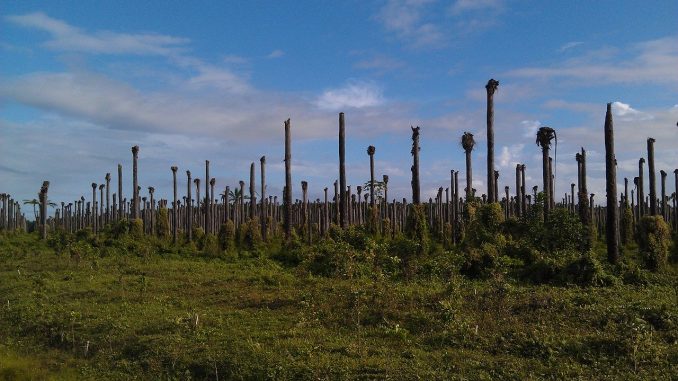
Palm oil worse than feared for the environment
The production of palm oil has greater environmental consequences than previously known, a new research study shows. Both in terms of carbon dioxide emissions and the depletion of local ecosystems.
The decomposition of rainforests in favor of palm oil production leads to greater greenhouse gas emissions than the UN Climate Panel previously calculated.
For every hectare of rainforest converted into oil plantation, 174 tonnes of carbon are released, most of which goes straight into the air in the form of carbon dioxide. As a comparison, this corresponds to approximately carbon dioxide emissions from 530 air passengers during a long flight.
This is stated by Thomas Guillaume, a researcher at the École Polytechnique fédérale de Lausanne University in Switzerland, who, together with seven other colleagues, has analyzed the carbon dioxide costs of converting rainforest into oil palm plantations. The study is published in the scientific journal Nature and is based on over two years of data collection in central Sumatra, Indonesia.
The fact that the research is based on data from precisely Indonesia is no coincidence. The country is the world’s largest palm oil producer and, together with Malaysia, accounts for nearly 85 percent of global palm oil production. In Indonesia, there are around 14 million hectares of oil plantations, which have usually been rainforest before, and the rate of deforestation is the fastest in the world.
Palm oil is used in everything from food to cosmetics and biofuels and is economically very important for many producer countries, while production has major environmental, and also social, consequences.
Like the soil being depleted on the oil plantations. According to the study, the amount of biomass on the ground after harvest is up to 90 percent lower than in a rainforest. This is because hardly any organic material, such as dead leaves and wood, is allowed to remain and enrich the soil. To facilitate the work, the grower constantly cleans up so-called natural debris and sprays the cultivation with chemical pesticides.
The result is a depleted soil with reduced biological activity, which the grower must then compensate with the help of large quantities of artificial fertilizers.
The fact that growers consider removing so much biomass to produce palm oil and leaving so little to the ecosystem really casts doubt on the sustainability of this type of cultivation
Though completely driven it does not seem to be. The study also provides some practical advice on how to reduce the negative environmental effects of palm oil production, both in the short and longer-term.
Deforestation for oil plantations should only take place if the trees that are felled can be used without burning, such as for timber for house construction. At the plantation, a richer layer of vegetation should be left on the ground as a natural fertilizer. The residues from the oil palm mills should also be used and reused as fertilizers.
In the longer term, according to the study, one should switch to palm oil production that does not require deforestation. Today there are, for example, oil plantations established on savannas in Colombia and plantations on a smaller scale aimed at co-cultivation with other crops in Cameroon.
Leave a Reply